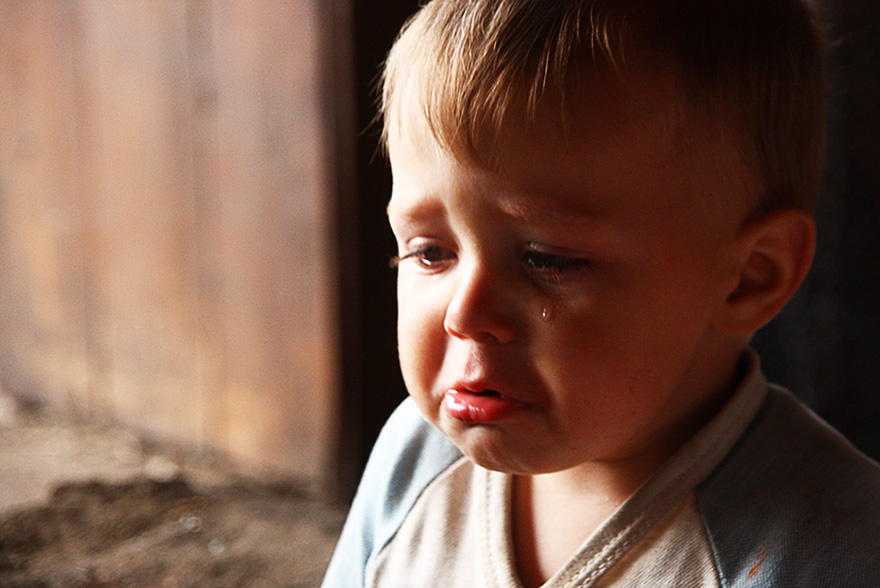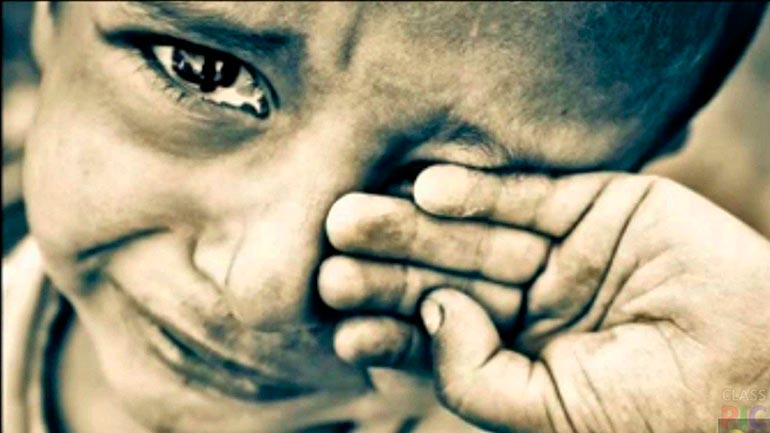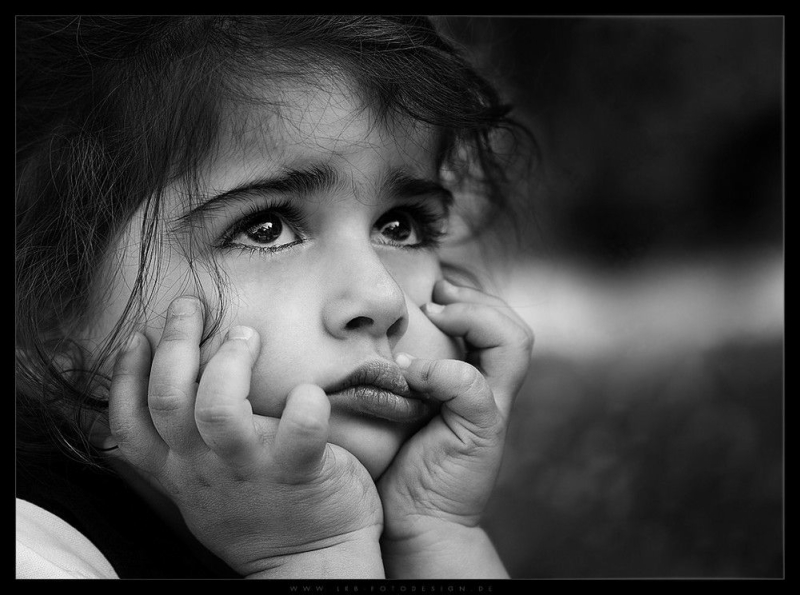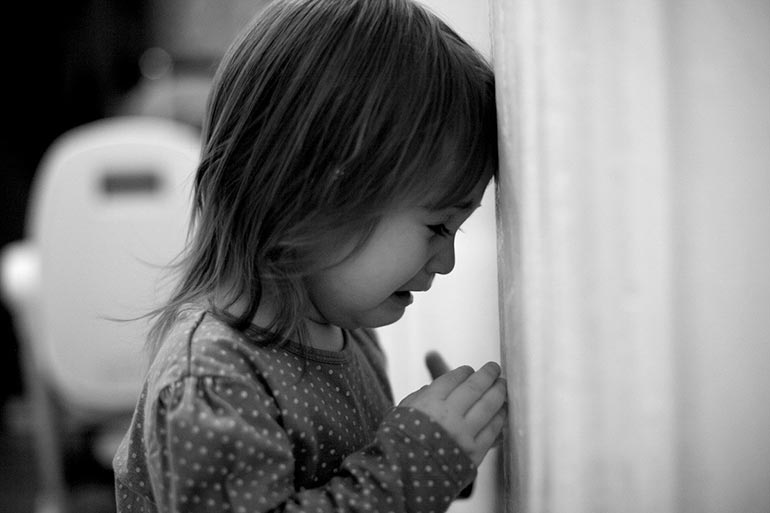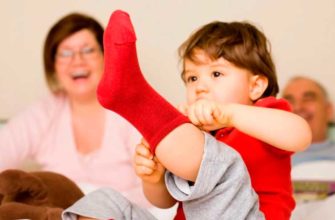All children cry, this is the norm. Someone "lets a tear" more often, someone less. Only strong stress (a prolonged lack of mother's attention, loss of a favorite toy, etc.), a marked deterioration in well-being, or acute physical pain can make one cry. Another has “eyes in a wet place” because of any nonsense (I put jam on my pants, I can’t put together a puzzle or build a tower of cubes, etc.). Time to have lunch or go to bed, go for a walk or return from a walk, going to kindergarten and to the store, going to relatives is also a risk situation. And not always adults, having seen “tears on the wheels”, know how to behave correctly in order to calm the baby. Children's tears leave few indifferent. But when it seems to parents that there is no reason for them, the reaction may not be entirely correct. Here are five common parental mistakes to avoid.
No need to shout and ban
If you are upset, outraged, or offended so much that you’re ready to cry, would you be able to instantly “equalize” emotions and smile at once upon demand? Hardly. Nor can this child. Therefore, it makes no sense to demand an immediate cessation of crying, especially in high tones. The fact that you do not understand the feelings of your baby will upset him even more. By forbidding to pour out grief, you risk:
- get a tantrum in protest;
- provoke psychological “tightness” of the crumbs under the yoke of accumulated grievances, anger and discontent;
- to break their psycho-emotional relationship with the child and the ability to communicate openly with him.
Therefore, screaming is a common, but least effective way to deal with childhood tears.
Excessive anxiety
Even if you are extremely emotional by nature, you do not need to panic at every opportunity. Many parents rush headlong at children's tears, wipe away tears and play theatrically, or even shake with horror at the sight of the slightest abrasion on the knee of a precious child.
Did your son stumble and break his knee? Do not run to him headlong, condemning how poor and miserable he is. Keep calm. Examine the wound and evaluate the position. Seeing that the parents are not panicking, the boy will quickly recover. Abrasions and broken elbows in childhood are a matter of everyday life. If you arrange a drama each time, this can adversely affect the development of the baby, his perception of any unpleasant events (https://detstrana.ru/article/deti-3-7/vospitanie/5-nepravilnyh-reaktsij-na-detskie-slyozy /).
Stop! Behave like an adult. Soberly assess the situation. In the end, your tendency to dramatize any little thing can have a detrimental effect on the development of the baby and his perception of negative events in the future. And such injuries will be more serious than broken knees.
On the contrary, the calmness of the parents is transmitted to the child, and he quickly forgets about the tears and their cause.
Taunts and annoyance
By "devaluing" children's experiences, annoyingly brushing them off, you risk never teaching your child to boldly face problems and deal with them. After all, the baby needs your support! The worst option is caustic comments reminiscent of mockery. If you would cry from humiliation, injustice or resentment, and someone would say to you: “That's a roar!” - would it reassure you?
Do not discount the experience, asking: “Stop whimpering because of such nonsense!” For you, a quarrel with a girlfriend or a reprimand from your superiors is not a trifle? Surely upset. Pain, fatigue, disappointment, due to which children can cry, are no less significant problems, it is better to treat them with understanding, so that in the future a little person learns how to overcome them.
Humiliating remarks addressed to boys are also unacceptable: “Fu, howling like a girl!”, “You are like a man to me” ... Thus, you are taking away from your son the right to openly express your feelings, which can lead to serious problems in the future. But all can experience anxiety, excitement, pain, and gender differences do not take place here.
Rudeness and bullying
Rudeness, harshness and the desire to scare are also not the best parental ideas. Even if you are in a hurry for a train or for an important meeting, see a doctor or be late for the bus. Even if you yourself are tired and upset - do not say rudeness in response to the tears and complaints of the child.
Take a moment's pause, find out what made the child cry, is it all serious. Promise to solve his problems, but a little later (but the promise must be fulfilled without fail!).
This is much more effective than threatening to give the child to someone else’s uncle, to send to the police or to call an evil doctor with an injection (and this intimidation in frequency of use is the most popular threat). Fear does not set you up for positive, which means it does not contribute to calm.
Indifference
Psychologists advise not to lose your head if the child cries. However, do not confuse calm and indifference / indifference. Not a single person cries just like that, and even more so children, there is always a reason for crying. The more quickly you find out the cause of children's tears, the faster you can eliminate it without risking a good relationship with the baby. If you remain indifferent to children's tears, you risk a good relationship: a daughter or a son might think that their feelings are indifferent, and shut up, stop trusting you.
And in no case should you use physical action! Even light spanking can have grave consequences for the child’s psyche (to beat or not to beat a child - consequences of physical punishment of children) Do not deprive the baby of confidence in you and the world around him. In the future, this is fraught with bitterness and aggression directed, including, already against you. Better show your child that you are close and ready to help.
Innocent, from the point of view of an adult, a slap can undermine the baby’s trust in the world, in close people, contribute to bitterness and aggression towards others.
Children's whims are sometimes difficult to tolerate, they are morally exhausting. You feel like a stretched string that is about to break. Always, even if it’s hard for you, remember that the child is also ill. Crying for him is a way to “let off steam”, calm down, accept the situation. And in such moments he really needs your love, participation and care. Remember the simple truth: the less children, in your opinion, deserve love at a particular moment, the more desperate they need it. Therefore, do not hesitate to hug your baby and say how much he is dear to you.
We also read: 13 tricks for mom at the whim and cry of the child

